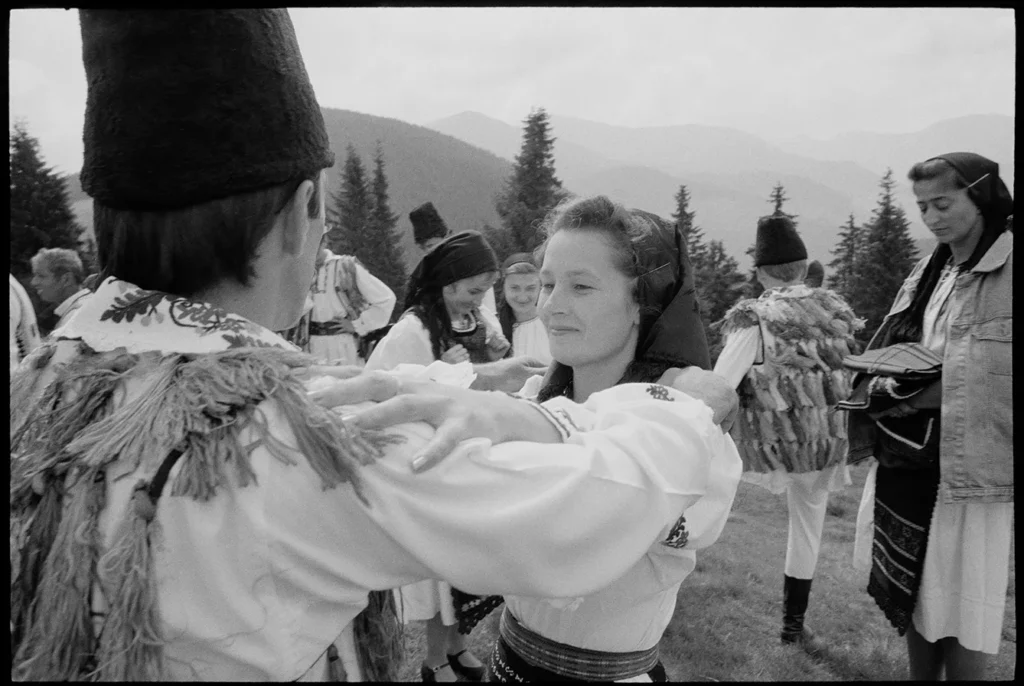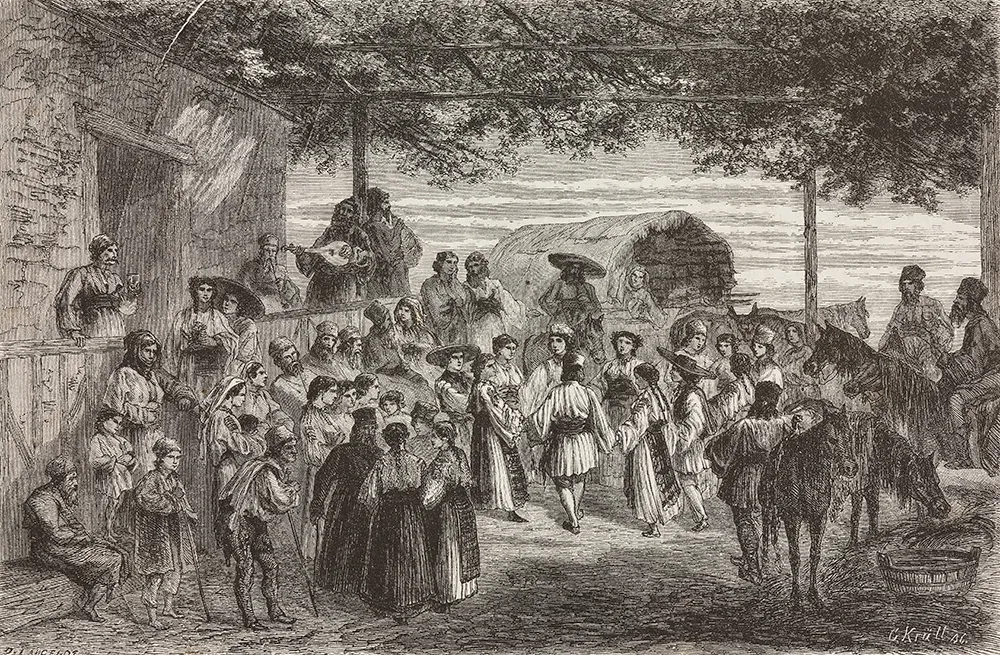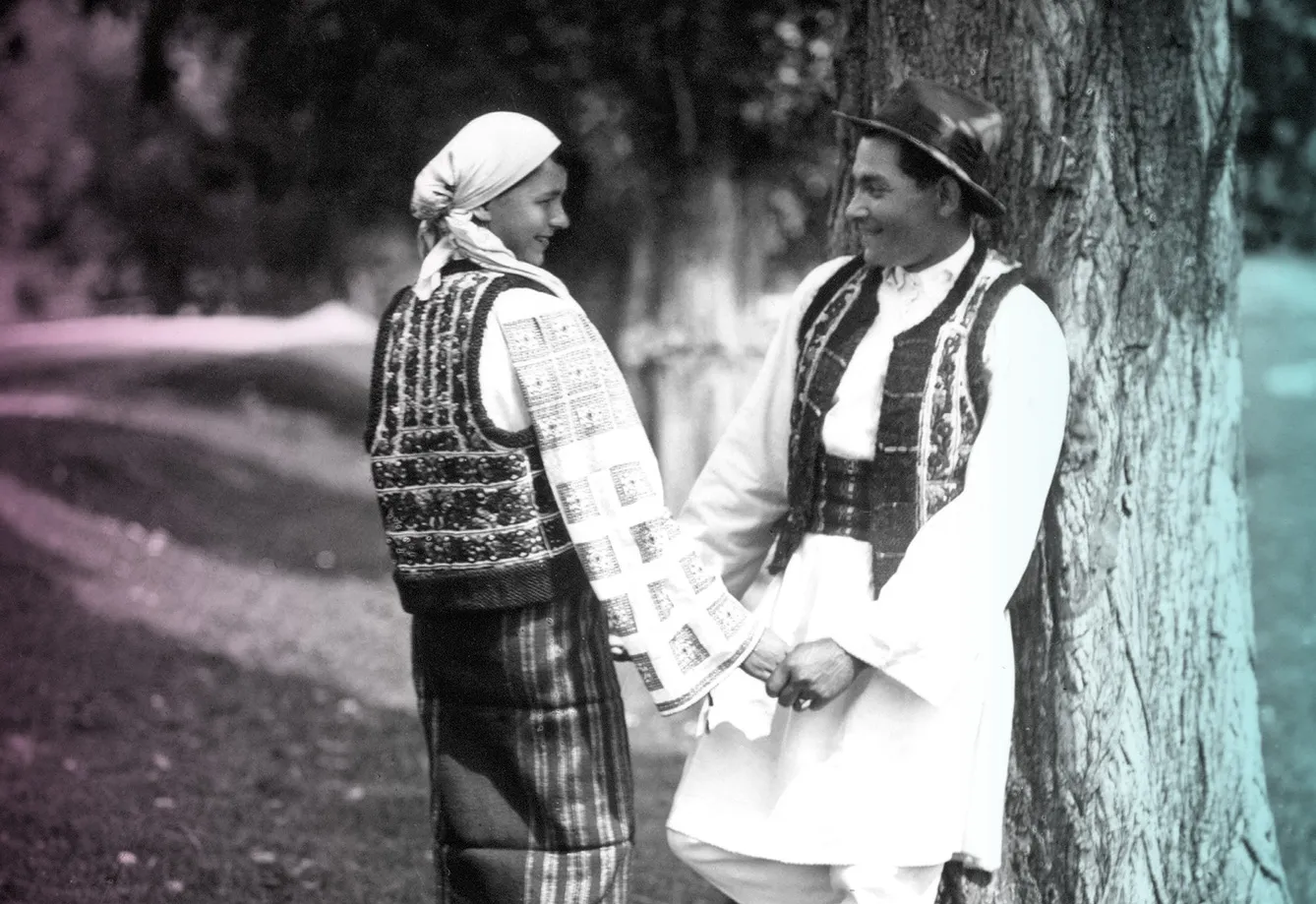February is, indeed, the month of love. If you enjoy Valentine’s Day, you’ll be thrilled to find out Romanians celebrate it not once but twice. However, if you’ve had enough of the commercial status quo of the holiday, you are invited to discover the not-so-materialistic, more authentic Romanian “version” of the celebration.
Dragobete, son of Baba Dochia
Dragobete, the demigod who was entrusted with reminding people of the importance of love, was the son of Baba Dochia (Old Lady Dochia), the mythical interpretation of the longing for Spring. According to the multiple variations of the legend, the demigod got married against his mother’s will and, as a result of Baba Dochia’s various attempts to mistreat her son’s wife and break them up, she ends up dead on a mountain hill.


Well, the road from running interference to Baba Dochia meeting her end upon a peak is long, but you get the point. This is often compared in modern life with the fate of those who interfere in other peoples’ relationships. Therefore, Dragobete, unlike Cupid or other match-making deities, never interfered in human relationships, his purpose being that of spreading good cheer and reminding people to love and appreciate each other.
The “official” celebration date is 24 February, although, throughout history and the country, many people celebrate it on other dates. As you can imagine, just the position in the calendar has saved many “forgetful” couples from a possible break-up, as the “I was planning a surprise for the 24th” can often act as a last-minute excuse when the 14th comes, and it does not go as planned.
Communism against love
Unfortunately, Dragobete had to be put on hold during the communist regime. Due to the prolonged period he was away, his popularity has drastically reduced, especially in front of other more mainstream love celebrations such as Valentine’s day. Dragobete may not be as popular as its counterpart, but he is definitely not forgotten, specifically in the countryside.
Here, every 24th of February is eagerly expected as it gives those who fancy each other a chance to confirm their love in public. Early in the morning, boys and girls would adventure into the deep woods and pick up flowers, making small bouquets and crowns that they would later exchange.
As the sun sets, the young would climb up the hills and mountains and dance the hora around the fire and sing chants up until late in the night or early in the morning. The girls run away as soon as the sun peaks, and the boys run after them, hoping to catch the one their heart has decided upon. Should they be successful in doing so, and should the girl like the boy back, their choice would now be sealed in a true love’s kiss that would, more often than not, mark their engagement.
For Romanians, the 24th of February, the much-awaited Dragobete day, is not just about chocolate and plush bears. It’s about recognizing, appreciating, and celebrating love, sometimes by the simplest means. And even though the vast popularity of the 14th of February has definitely highlighted the romantic aspect of Dragobete’s day, it remains an opportunity for people everywhere to stop in their tracks and let someone they care about know they are loved, be it family, friends, or lovers.







